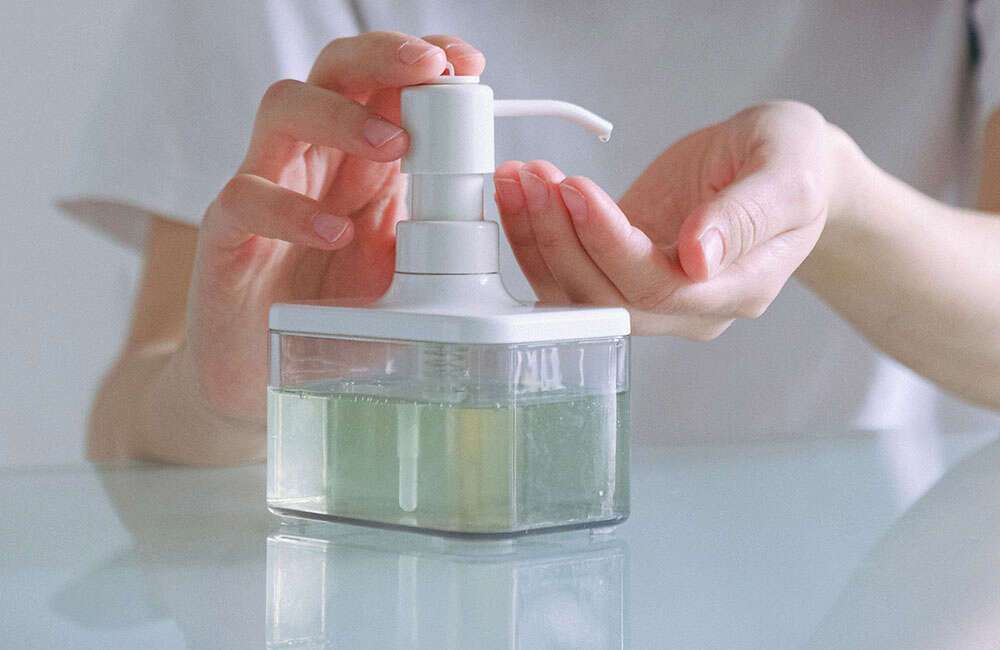Handwashing plays a vital role in restaurant sanitation. Yet a study from the CDC found that food service workers only washed their hands in 27% of the activities they were supposed to.
As a restaurant owner or manager, it is your responsibility to outline and enforce handwashing procedures to ensure that your restaurant's cleanliness meets the appropriate standards. If staff fail to follow handwashing procedures, the risk of foodborne illness significantly increases.

The key is to get staff to follow these standards voluntarily. Here are six tips to help establish a culture of food safety:
1. Help Employees See the Need for Handwashing
Seeing is believing, and this can be a helpful tool when it comes to building handwashing skills. If employees can see the result - the necessity of proper handwashing, then they will be more inclined to follow the rules of hand sanitation because they want to and not because they have to.
There are a few ways to demonstrate the need for thorough handwashing:
UV Lamp
For this demonstration, you will need:
- UV lamp
- Oil with a fluorescing compound
The oil is applied to the hands the same way lotion would be applied. Hands are washed using soap and water, and the UV lamp is used to detect any traces of the oil that did not wash off. If the hands are glowing under the UV lamp, they are not clean.
Each employee can take a turn demonstrating their handwashing skills and seeing the results.
Colored Spices
A similar demonstration can be performed using ingredients you may already have in your kitchen.
Mix a colored spice, like turmeric, paprika or cinnamon, in cool cooking oil. Have employees demonstrate their handwashing skills. If the hands are not thoroughly washed, you will be able to see and smell the spice.
It takes time to build proper handwashing skills, but exercises such as these can help employees improve their techniques and thoroughness.
2. Reward Good Handwashing Habits
There are many ways to ensure that the staff washes their hands regularly. Some restaurants have systems in place that remind staff to wash their hands every 30 minutes during their shifts. But ultimately, the goal should be to get your team to wash their hands regularly and voluntarily.
Rewarding good handwashing skills can be a very effective approach. Praise and incentives can go a long way in helping staff build and maintain their handwashing skills. Rewards don't have to be expensive. A simple note or a small reward for following procedures can go a long way in encouraging employees to wash their hands regularly.

3. Explain the Consequences of Poor Hand Sanitation
Safety and sanitation are not luxurious in restaurants - they are requirements. Employees need to understand the importance of handwashing and the ramifications of poor kitchen sanitation. The purpose isn't to instill fear, but to ensure that staff understands the reality of the damages a foodborne illness can do to a restaurant and its workers.
If handwashing rules are not followed, foodborne illness may very well become a problem. Staff may lose their jobs, and the restaurant may be hit with damages that could bankrupt the business.
4. Hand Gloves Are Not an Excuse for Lax Sanitation
Protective gloves can add an extra layer of protection to prevent contamination. However, they are not an excuse for lax hand sanitation.
Although gloves play an important role in restaurant hygiene, they can also provide a false sense of security. Proper training and education can help staff understand how to use gloves properly, such as:
- Ensuring staff wash their hands thoroughly before and after wearing gloves
- Ensuring staff don't touch surfaces that will contaminate the gloves
Gloves can just as easily become contaminated as bare hands. Regular training and guidance are the best ways to ensure that food safety procedures are practiced at all times.
5. Ensure that Staff Understand How to Use Gloves Properly
Gloves, if used properly, can help a restaurant maintain hygiene standards. There are several different types of gloves that staff may use, depending on the task, and they must follow the appropriate procedures when using each type.
- Single-use gloves can only be used for a single task. They must be discarded at the end of a session, if there is an interruption to a session, or if they become damaged or contaminated. Gloves should never be reused. They should always be changed when switching workstations or when taking a break.
- Anti-slash gloves should only come in contact with foods that are cooked, such as frozen vegetables or cuts of meat.
- Cloth gloves may only come in contact with foods that will be cooked immediately after handling them.
With all types, hands must be washed before and after using gloves. Injured hands should always be protected with bandages and gloves.
It's important to train staff on how to use gloves properly, including when to change them, how to change them, and how to handle food (including the types of food to handle) when wearing them.
6. Set an Example
Managers, chefs, and owners should follow the same handwashing procedures that the rest of the staff is required to follow. The goal should be to create a culture where food safety is the top priority. The best way to do that is to set an example. Follow the same procedures that staff is required to follow, and they will be more likely to follow them as well.
Many states and local jurisdictions now require that at least one restaurant manager pass a food manager certification exam. This ensures that managers have a thorough understanding of food safety and sanitation practices in restaurant settings.
Even if your state or local jurisdiction doesn't require this certification, it is worthwhile to have your manager pass the exam. That knowledge will help ensure that food safety remains a top priority and that staff is following the rules when it comes to handwashing.
Handwashing plays an essential role in maintaining appropriate restaurant cleanliness standards. Use the tips above to train your staff on how to wash hands properly and give incentives to follow these protocols voluntarily.
